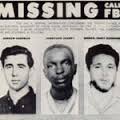
Photo by Ronald Hartsell
I don’t really know if anyone knows the whole story.
The whole story is painful. It is beautiful.
When my little congregation formed in January, 2004 as a havurah, our first meetings were held at a local church in Concord, North Carolina. One of our interfaith couples suggested that church; one of the two spouses was an active and happy member at that church.
So we met in their fellowship hall once a month or so for about a year.
None of us knew that there was a deep division in the community about our presence. None of us knew that the minister (who has long since moved away) was being visited each week by church members who believed Jews worshipping in the church was a real danger to the community. She told me later what they had said.
“The Jews will destroy the church.”
I had a few other minister friends in Concord. One was Pastor Steve Ayers, of McGill Baptist Church. Wounded and shocked, I told him what had happened.
He said, “Come to McGill, Barbara.”
So we moved to a Baptist church in Concord.
We knew that some Jews would automatically assume that we were messianic and would not dare to come and find out otherwise. We knew that some people would call McGill and ask if Jews met there. We knew both congregations might take a hit for their conviction that they could worship in the same space with love, tenderness, and respect.
In the very first year we were at McGill we learned we would have to raise thousands of dollars to restore our first Torah. For twelve families, that was a daunting challenge. Steve told me that McGill Baptist would refuse to take any rent; whatever money we had should go to the restoration.
To this day, I remind congregants that some of the letters on our first Torah were put there by Baptist generosity.
Sometimes, despite all our busy schedules, we managed to do congregational things together – a joint Hanukkah-Christmas party, a trip to see the Dead Sea Scroll exhibit when it came to Charlotte. I visited the McGill Baptist Adult Education class every year and spoke on a range of different topics to a community of enthusiastic and loving learners.
I stood before the congregation yesterday to thank them. I cried through each word. I thought of the things that had happened to me in that sanctuary.
Before we made the move to McGill, the congregation had invited me to deliver a talk on Judaism. After a long and wonderfully enthusiastic conversation with congregants at a program that was supposed to last an hour and turned into almost three hours, I turned to my husband, Ralf, and said, “I think I better apply to rabbinical school – I need to know a lot more than I do to answer questions like those.”
Later, I joked that I got the “call” in a Baptist sanctuary.
I have sung Avinu Malkeynu with passion and power in that room. I have prostrated onto its floor. I have felt the souls of my ancestors attending to our prayers.
I have heard birds chirping at the window while we sang Elohai neshama, “my God, the soul you have given me is pure.”
I have seen my congregants dance across the sanctuary floor. Children have sung prayers and chanted from our Torahs. We have celebrated, and celebrated, and celebrated again.
God has flowed right through my bones.
How could I manage to tell those generous people at McGill that I became a better rabbi in their sanctuary, that I learned how to serve the Holy One there?
At yesterday’s service, Pastor Steve gave Temple Or Olam a blessing. He wished us well as we move closer to the university area, to another location and a different part of the way on our path. He reminded his congregation (and us) that living the love of God is our task. We are the face of the divine, he said. Sometimes we are the only messenger to others for that love.
He spoke about what it means to love others who are not always like you, who speak or look or act differently, but who need your outstretched arms, your heart and soul extended.
B’tzelem Elohim, in the image of God were we created. Each of us is a face of the Divine.
To all of you at McGill Baptist Church: For your grace, your generosity, your open-heartedness, and your love, I say again, “thank you.”
God knows the whole story.


